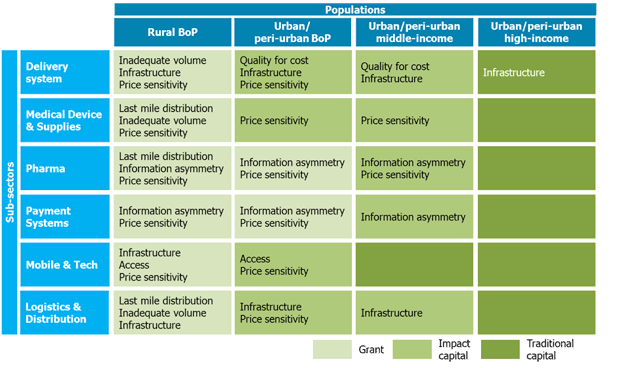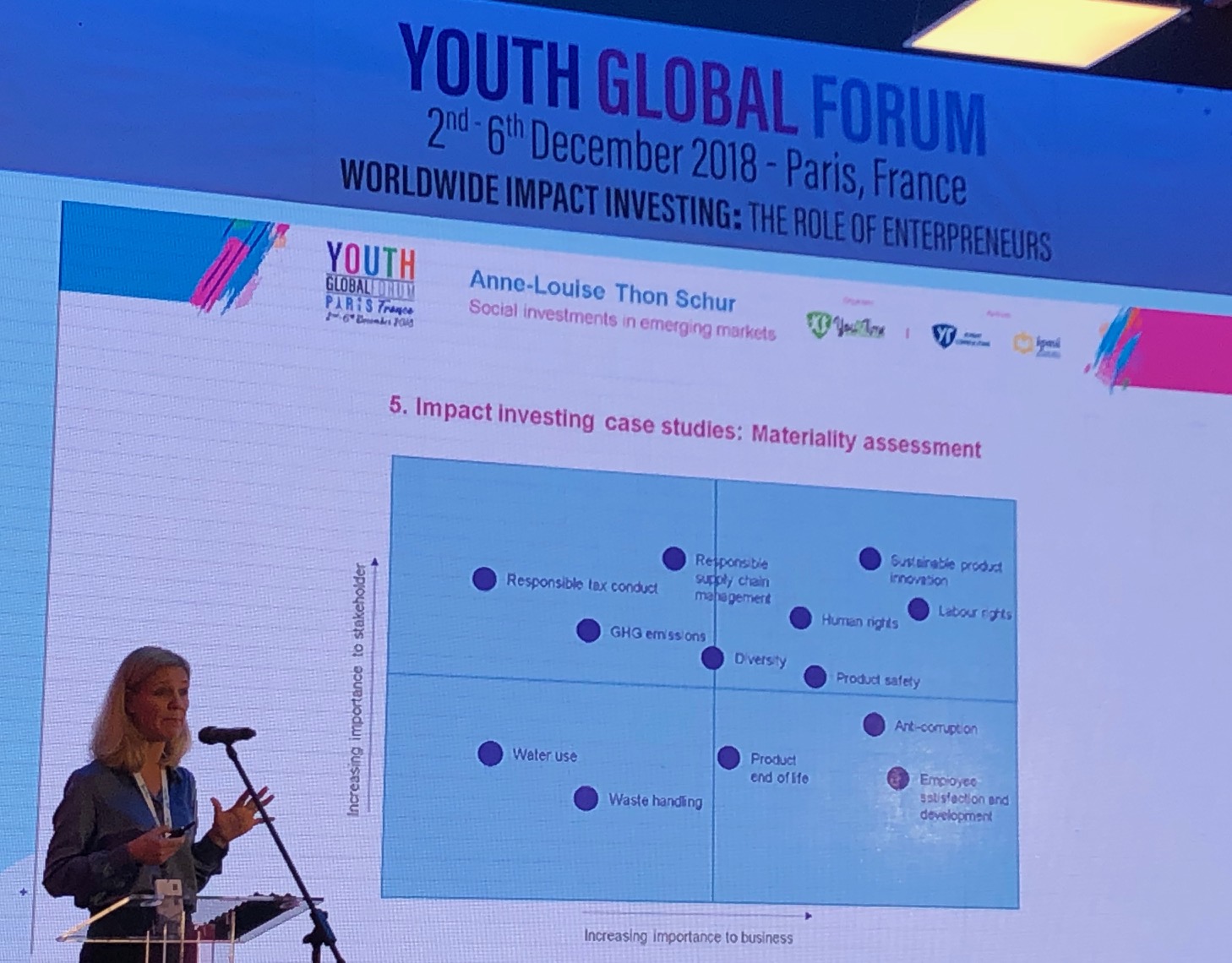Are Venture Capital And Private Equity The Same?
Out of eviction, 2020 is being hailed as a return year for emerging-markets investing. In sub-Saharan Africa, the World Bank forecasts financial growth to get to 2.9% (from an estimated 2.5% in 2019. However global investors seeing indicators like oil and commodity exports may be missing out on the real story, according to regional and regional impact investors.” There are numerous more investment opportunities in Africa than people will see from afar.
” What we discover most interesting are opportunities investors often misconstrue.” For example? Financial inclusion, logistics and agriculture., with workplaces in Amsterdam, Nairobi and Cape Town, is raising a series of funds for its pan-African uMunthu impact effort (Tyler Tivis Tysdal). Goodwell has recently purchased Nigeria’s, a bike taxi hailing and finance start-up, and South Africa’s, which created a digital payments platform for informal company owner.
The explosion of mobile money throughout the continent has actually created infrastructure to support a raft of new services. In farming, unlocking the productive capabilities of nearly countless smallholder farmers, he states, could fuel a “bottom-up farming revolution.” Effective logistics has a ripple effect on every other sector, from health care shipment to education.
Other regional and regional investors agree small and growing companies represent the greatest impact opportunities on the continent. “This segment of the market is the bread and butter of the African economy,” Nigeria-based Aruwa Capital’s Adesuwa Okunbo Rhodes informed ImpactAlpha – Tyler T. Tysdal. Investing in these organisations’ development is impact investing, she argues.


The gender-focused impact financier is targeting West African individuals and household workplaces to raise its first fund in order to show what’s possible “Fundraising from them was deliberate. Tyler Tivis Tysdal. They understand the environment and know the business in our pipeline,” Rhodes says. “We can take that portfolio and performance history to institutional investors.” A handful of high profile, big-ticket offers last year put Africa back on the radar of global investors, and stirred concerns about an Africa “bubble.” Medical drone delivery business Zipline scored a whopping $190 million from TPG Growth’s Rise Fund, Temasek, Goldman Sachs and others.
Pay Civil Penalty

Off-grid solar companies in Africa raised hundreds of countless dollars. Digital financial services business have actually set new records in both revenues and valuations. LeapFrog’s Andrew Kuper informed ImpactAlpha that JUMO’s $70 million capital raise, led by Goldman Sachs in December 2018, was the very first sign of growing digital loaning, followed by Tala’s $110 million Series D round last August.

LeapFrog is a financier in both JUMO and WorldRemit. LeapFrog raised $700 million for its third fund last year on the strength of its tally of exits and successes in under-capitalized sections of the African market. Kuper states access to fundamental services for 10s of millions of people throughout the continent represents a major favorable shift.
Kuper said LeapFrog “sees outstanding deal flow continuing in consumer-led health care and financial services in 2020. Tyler Tysdal Lone Tree. He likewise expects to see more “buy-and-build offers,” such as Goodlife Drug Store in Kenya. Goodlife, a regional chain of pharmacies, grew from six to 19 shops under its very first private equity owner, then to 60 stores under its second owner.

” This is the future of healthcare, in resource-constrained environments, not simply for Africa however for emerging and developed markets too,” Kuper stated. Fintech is one sector with both huge impact capacity and where impact investors must proceed with caution. In Kenya, for example, an expansion of alternative credit-scoring services are providing newbie debtors with near-instant access to mobile credit at the same time usage of gambling apps is soaring amongst people who have secured quick and simple digital credit.
Goodwell and other investors last year teamed up by means of the Responsible Finance Forum on Guidelines for Accountable Investing in Digital Financial Solutions – Tyler T. Tysdal. “If services aren’t being offered in a responsible method, they can in fact perpetuate monetary exemption (Tyler T. Tysdal).” Pressure to deploy ever-larger volumes of capital, combined with doubtful due diligence practices and very little to no local presence or proficiency create the conditions for a correction or market shakeout.
Managing Partner Tivis


” It’s a situation we have actually seen in emerging markets investing in the past. There will be some train smashes in the next few years.”.

open share links close share links Last month, leaders at a few of the world’s biggest business took the notable step of redefining the function of a corporation, embracing a “contemporary requirement” for business responsibility that promotes “an economy that serves all Americans.” The 181 CEOs who signed the declaration from Company Roundtable, an association of primary executive officers headed by JPMorgan Chase’s Jamie Dimon, vowed to run their companies “for the advantage of all stakeholders customers, staff members, suppliers, communities, and shareholders.” The statement marks a notable move far from the adherence to investor primacy the belief that corporations exist principally to serve shareholders which the group had accepted given that at least 1997 (Tyler T. Tysdal).
That pivot must stand out of a growing variety of organizations devoted to impact investing, the practice of buying business, companies, and funds with the intent of producing not just financial returns, however measurable social and ecological impact too (Tyler Tivis Tysdal). Underlying that philosophy is the belief that personal capital is vital to dealing with the world’s most pressing environmental, social, and governance (ESG) problems, a principles echoed in business Roundtable statement of purpose, which stated, “We think the free-market system is the very best ways of creating good jobs, a strong and sustainable economy, development, a healthy environment, and financial chance for all.” That dovetails with views shared at an impact investing panel held previously this year, part of the 2019 MIT Sloan Investment Conference.
” The objective is to invest in services and products that serve a requirement, address genuine challenges, and likewise can and should have to be successful.” We’re focusing on the impact that investing has beyond monetary return. In addition, you’re wishing to generate an ecological or other impact. MIT Sloan finance “Impact investing is values-driven financing you allocate capital to line up with the world you wish to see,” stated Amrita Sankar, MBA ’20, co-president of the MIT Impact Investing Effort.
We see impact investing as a chance to utilize markets to fix for these type of concerns by supplying positive social and environmental returns.” For all its appeal, the concept can be hard to pin down the expression “impact investing” itself is ambiguous, said Gita Rao, a member of the MIT Sloan finance professors who teaches a class on social impact investing.
Wife Invested
” That’s why my course is titled ‘Social Impact Investing,’ since we’re concentrating on the impact that investing has beyond monetary return. In addition to monetary return, you’re wanting to produce an ecological or other impact.” The concept of investing with intent beyond monetary return isn’t new, Rao stated. “Faith-based companies have actually been investing in accordance with their worths for a long time,” she mentioned. Tyler T. Tysdal.